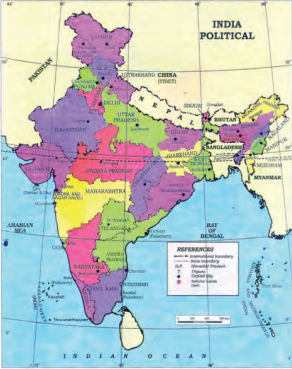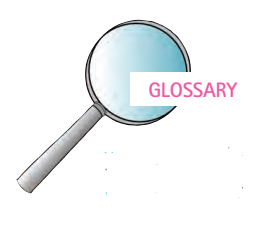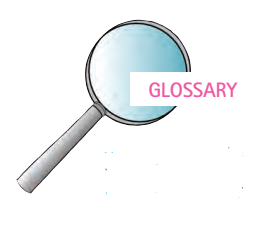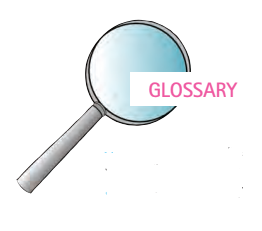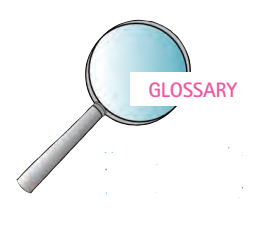Social and Political Life
1. Why does a democratic country need a Constitution?
2. Look at the wordings of the two documents given below. The first column is from the 1990 Nepal Constitution. The second column is from the more recent Constitution of Nepal.
| 1990 Constitution of Nepal Part 7: Executive | 2015 Constitution of Nepal 7: Federal Executive |
|---|---|
| Article 35: Executive Power: The executive power of the Kingdom of Nepal shall be vested in His Majesty and the Council of be vested in the Council of Ministers. | Article 75: Executive Power: The executive power of Nepal shall, pursuant to this Constitution and law, be vested in the Council of Ministers. |
What is the difference in who exercises ‘Executive Power’ in the above two Constitutions of Nepal?
3. What would happen if there were no restrictions on the power of elected representatives?
4. In each of the following situations, identify the minority. Write one reason why you think it is important to respect the views of the minority in each of these situations.
(a) In a school with 30 teachers, 20 of them are male.
(b) In a city, 5 per cent of the population are Buddhists.
(c) In a factory mess for all employees, 80 per cent are vegetarians.
(d) In a class of 50 students, 40 belong to more well-off families.
5. The column on the left lists some of the key features of the Indian Constitution. In the
other column write two sentences, in your own words, on why you think this feature
is important:
| Key Feature | Significance |
|---|---|
| Federalism | |
| Separation of Powers | |
| Fundamental Rights | |
| Parliamentary Form of Government |
6. Write down the names of the Indian States, which share borders with the following neighbouring nations:
(a) Bangladesh
(b) Bhutan
(c) Nepal
Arbitrary: When nothing is fixed and is instead left to one’s judgment or choice. This can be used to refer to rules that are not fixed, or decisions that have no basis etc.
Ideal: A goal or a principle in its most excellent or perfect form.
Indian national movement: The Indian national movement emerged in nineteenth-century India and saw thousands of men and women coming together to fight British rule. This culminated in India’s independence in 1947. You will learn about this in greater detail in your history textbook this year.
Polity: A society that has an organised political structure. India is a democratic polity.
Sovereign: In the context of this chapter it refers to an independent people.
Human Trafficking: The practice of the illegal buying and selling of different commodities across national borders. In the context of Fundamental Rights discussed in this chapter, it refers to illegal trade in human beings, particularly women and children.
Tyranny: The cruel and unjust use of power or authority.
1. List the different types of religious practice that you find in your neighbourhood. This could be different forms of prayer, worship of different gods, sacred sites, different kinds of religious music and singing etc. Does this indicate freedom of religious practice?
2. Will the government intervene if some religious group says that their religion allows them to practise infanticide? Give reasons for your answer.
3. Complete the following table:
| Objective | Why is this important? | Example of a violation of this objective |
|---|---|---|
| One religious community does not dominate another. | ||
| The State does not enforce any particular religion nor take away the religious freedom of individuals. | ||
| That some members do not dominate other members of the same religious community. |
4. Look up the annual calendar of holidays of your school. How many of them pertain to different religions? What does this indicate?
5. Find out some examples of different views within the same religion.
6. The Indian State both keeps away from religion as well as intervenes in religion. This idea can be quite confusing. Discuss this once again in class using examples from the chapter as well as those that you might have come up with.
7. This poster alongside highlights the need for ‘Peace’. It says, “Peace is a never-ending process....It cannot ignore our differences or overlook our common interests.” Write in your own words what you think the above sentences are trying to convey? How does it relate to the need for religious tolerance?
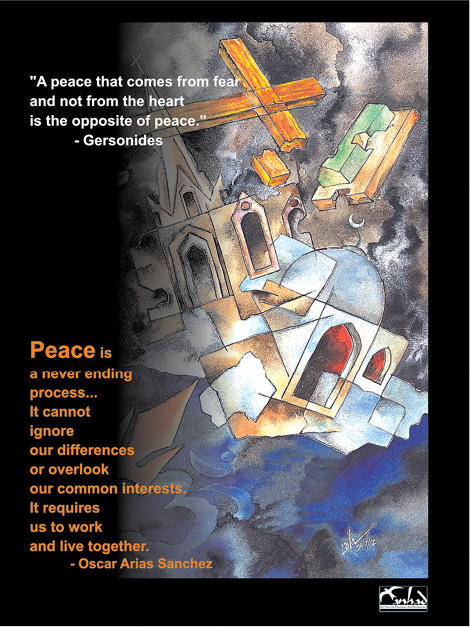
This chapter had three drawings on religious tolerance made by students of your age. Design your own poster on religious tolerance for your peers.
Coercion: To force someone to do something. In the context of this chapter, it refers to the force used by a legal authority like the State.
Freedom to interpret: The independence that all persons shall have to understand things in their own way. In the context of this chapter, it refers to a person’s liberty to develop their own understanding and meaning of the religion they practice.
Intervene: In the context of this chapter, it refers to the State’s efforts to influence a particular matter in accordance with the principles of the Constitution.
1. Why do you think our national movement supported the idea that all adults have a right to vote?
2. In this 2004 map of Parliamentary constituenciesalongside, roughly identify the constituencies in your State. What is the name of the MP from your constituency? How many MPs does your state have? Why are certain constituenciescoloured green while others are coloured blue?

3. You have read in Chapter 1 that the ‘Parliamentary form of government’ that exists in India has three tiers. This includes the Parliament (central government) and the various State Legislatures (state governments). Fill in the following table with information on the various representatives from your area:
| State Government | Central Government | |
|---|---|---|
| Which political party/parties is/are currently in power? | ||
| Who (name) is the current representative from your area? | ||
| Which political parties currently form the Opposition? | ||
| When were elections last held? | ||
| When will the next elections be held? | ||
| How many women representatives are there (from your state)? |
1. Write in your own words what you understand by the term the ‘rule of law’. In your response include a fictitious or real example of a violation of the rule of law.
2. State two reasons why historians refute the claim that the British introduced the rule of law in India.
3. Re-read the storyboard on how a new law on domestic violence got passed. Describe in your own words the different ways in which women’s groups worked to make this happen.
4. Write in your own words what you understand by the following sentence on page 44-45: They also began fighting for greater equality and wanted to change the idea of law from a set of rules that they were forced to obey, to law as including ideas of justice.

Criticise: To find fault with or disapprove of a person or thing. In the context of this chapter, it refers to citizens finding fault with the functioning of government.
Evolution: Process of development from a simple to a complex form and is often used to discuss the development of a species of plants or animals. In the context of this chapter it refers to the way in which protecting women against domestic violence developed from an urgently-felt need to a new law that can be enforced throughout the country.
Sedition: This applies to anything that the government might consider as stirring up resistance or rebellion against it. In such cases, the government does not need absolute evidence in order to arrest persons. Under the Sedition Act of 1870, the British had a very broad interpretation of what constituted sedition, and what this meant was that they could arrest and detain any person they wanted under this Act. The nationalists considered this law arbitrary because persons were arrested for a variety of reasons that were seldom clarified beforehand as well as because those arrested were often kept in jail without a trial.
Repressive: To control severely in order to prevent free and natural development or expression. In the context of this chapter it refers to laws that brutally control persons and often prevent them from exercising their Fundamental Rights including Right to Speech and Assembly.
Chapter - 05 Judiciary1. You read that one of the main functions of the judiciary is ‘upholding the law and Enforcing Fundamental Rights’. Why do you think an independent judiciary is necessary to carry out this important function?
2. Re-read the list of Fundamental Rights provided in Chapter 1. How do you think the Right to Constitutional Remedies connects to the idea of judicial review?
3. In the following illustration, fill in each tier with the judgments given by the various courts in the Sudha Goel case. Check your responses with others in class.

4. Keeping the Sudha Goel case in mind, tick the sentences that are true and correct the ones that are false.
(a) The accused took the case to the High Court because they were unhappy with the decision of the Trial Court.
(b) They went to the High Court after the Supreme Court had given its decision.
(c) If they do not like the Supreme Court verdict, the accused can go back again to the Trial Court.
5. Why do you think the introduction of Public Interest Litigation (PIL) in the 1980s is a significant step in ensuring access to justice for all?
6. Re-read excerpts from the judgment on the Olga Tellis vs Bombay Municipal Corporation case. Now write in your own words what the judges meant when they said that the Right to Livelihood was part of the Right to Life.
7. Write a story around the theme, ‘Justice delayed is justice denied’.
8. Make sentences with each of the glossary words given on the next page.
9. The following is a poster made by the Right to Food campaign.

Read this poster and list the duties of the government to uphold the Right to Food.
How does the phrase “Hungry stomachs, overflowing godowns! We will not accept it!!” used in the poster relate to the photo essay on the Right to Food on page 61?

Sustainable Development Goal (SDG)
www.in.undp.org

Acquit: This refers to the court declaring that a person is not guilty of the crime which he/she was tried for by the court.
To Appeal: In the context of this chapter this refers to a petition filed before a higher court to hear a case that has already been decided by a lower court.
Compensation: In the context of this chapter this refers to money given to make amends for an injury or a loss.
Eviction: In the context of this chapter this refers to the removal of persons from land/homes that they are currently living in.
Violation: In the context of this chapter it refers both to the act of breaking a law as well as to the breach or infringement of Fundamental Rights.
In a town called Peace Land, the supporters of the Fiesta football team learn that the supporters of the Jubilee football team in the nearby city about 40 km away have damaged the ground on which the Final between both teams is to be held the following day. A crowd of Fiesta fans armed with deadly weapons attacks the homes of the supporters of the Jubilee football team in the town. In the attack, 10 men are killed, 5 women are gravely hurt, many homes are destroyed and over 50 people injured.
Imagine that you and your classmates are now part of the criminal justice system. First divide the class into the following four groups of persons:
1. Police 2. Public Prosecutor 3. Defence lawyer 4. Judge
The column on the right provides a list of functions. Match these with the roles that are listed on the left. Have each group pick the functions that it needs to perform to bring justice to those who were affected by the violence of the Fiesta fans. In what order, will these functions be performed?
| Roles | Functions |
|---|---|
| Police | Hear the witnesses |
| record the statements of witnesses | |
| Public Prosecutor | Cross examine the witnesses |
| take photographs of burnt homes | |
| Defence Lawyer | Record the evidence |
| arrest the Fiesta fans | |
| Judge | Writes the judgment |
| argue the case for the victims | |
| decide for how many years the accused will be put in jail | |
| examine the witnesses in court | |
| pass the judgment | |
| get the assaulted women medically examined | |
| conduct a fair trial | |
| meet the accused persons |
Now take the same situation but ask one student who is a supporter of the Fiesta Club to perform all the functions listed above. Do you think the victims would get justice if only one person performed all of the functions of the criminal justice system? Why not?
State two reasons why you believe that different persons need to play different roles as part of the criminal justice system.

Accused: In the context of this chapter this refers to the person who is tried by a court for a crime.
Cognizable: In the context of this chapter this refers to an offence for which the police may arrest a person without the permission of the court.
Cross-examine: In the context of this chapter this refers to the questioning of a witness who has already been examined by the opposing side in order to determine the veracity of his/her testimony.
Detention: In the context of this chapter this refers to the act of being kept in illegal custody by the police.
Impartial: The act of being fair or just and not favouring one side over another.
Offence: Any act that the law defines as a crime.
To be charged of a crime: This refers to the trial judge informing the accused, in writing, of the offence for which he/she will face trial.
Witness: In the context of this chapter this refers to the person who is called upon in court to provide a first-hand account of what he/she has seen, heard or knows.
1. Write in your own words two or more sentences of what you understand by the word ‘marginalisation’.
2. List two reasons why Adivasis are becoming increasingly marginalised.
3. Write one reason why you think the Constitution’s safeguards to protect minority communities are very important?
4. Re-read the section on Minorities and Marginalisation. What do you understand by the term minority?
5. You are participating in a debate where you have to provide reasons to support the following statement: ‘Muslims are a marginalised community’. Using the data provided in this chapter, list two reasons that you would give.
6. Imagine that you are watching the Republic Day parade on TV with a friend and she remarks, “Look at these tribals. They look so exotic. And they seem to be dancing all the time”. List three things that you would tell her about the lives of Adivasis in India.
7. In the storyboard you read about how Helen hopes to make a movie on the Adivasi story. Can you help her by developing a short story on Adivasis?
8. Would you agree with the statement that economic marginalisation and social marginalisation are interlinked? Why?
Hierarchy: A graded system or arrangement of persons or things. Usually persons at the bottom of the hierarchy are those who have the least power. The caste system is a hierarchical system and Dalits are considered to be at the lowest end.
Ghettoisation: A ghetto is an area or locality that is populated largely by members of a particular community. Ghettoisation refers to the process that leads to such a situation. This may occur due to various social, cultural and economic reasons. Fear or hostility may also compel a community to group together as they feel more secure living amongst their own. Often a ‘ghettoised’ community has few options of moving out, which may lead to them becoming alienated from the rest of the society.
Mainstream: Literally this refers to the main current of a river or stream. In this chapter it is used to refer to a cultural context in which the customs and practices that are followed are those of the dominant community. In connection with this, mainstream is also used to refer to those people or communities that are considered to be at the centre of a society, i.e. often the powerful or dominant group.
Displaced: In the context of this chapter this refers to people who are forced or compelled to move from their homes for big development projects including dams, mining etc.
Militarised: An area where the presence of the arm
ed forces is considerable.
Malnourished: A person who does not get adequate nutrition or food.
Chapter - 08 Confronting Marginalisation2. Re-read the story on Rathnam as well as the provisions of the 1989 Scheduled Castes and Scheduled Tribes (Prevention of Atrocities) Act. Now list one reason why you think he used this law to file a complaint.
3. Why do Adivasi activists, including C.K. Janu, believe that Adivasis can also use this 1989 Act to fight against dispossession? Is there anything specific in the provisions of the Act that allows her to believe this?
4. The poems and the song in this Unit allow you to see the range of ways in which individuals and communities express their opinions, their anger and their sorrow. In class, do the following two exercises:
(a) Bring to class a poem that discusses a social issue. Share this with your classmates. Work in small groups with two or more poems to discuss their meaning as well as what the poet is trying to communicate.
(b) Identify a marginalised community in your locality. Write a poem, or song, or draw a poster etc to express your feelings as a member of this community.
Assertive: An assertive person or group is one that can express themselves and their views strongly.
Confront: To come face to face or to challenge someone or something. In the context of this chapter, this refers to groups challenging their marginalisation.
Dispossessed: To possess is to own something and to be dispossessed is to have to give up ownership or to give up authority.
Ostracise:This means to exclude or banish an individual or a group. In the context of this chapter, it refers to a social boycott of an individual and his family.
Morally reprehensible: This refers to an act that violates all norms of decency and dignity that a society believes in. It usually refers to a hideous and repugnant act that goes against all the values that a society has accepted.
Policy: A stated course of action that provides direction for the future, sets goals to be achieved or lays out principles or guidelines to be followed and acted upon. In this chapter, we have referred to government policies. But other institutions like schools, companies, etc. also have policies.
1. Why do you think there are so few cases of private water supply in the world?
2. Do you think water in Chennai is available to and affordable by all? Discuss.
3. How is the sale of water by farmers to water dealers in Chennai affecting the local people? Do you think local people can object to such exploitation of ground water? Can the government do anything in this regard?
4. Why are most of the private hospitals and private schools located in major cities and not in towns or rural areas?
5. Do you think the distribution of public facilities in our country is adequate and fair? Give an example of your own to explain.
6. Take some of the public facilities in your area, such as water, electricity, etc. Is there scope to improve these? What in your opinion should be done? Complete the table.
| Is it available? | How can it be improved? | |
|---|---|---|
| Water | ||
| Water | ||
| Roads | ||
| Public Transport |
7. Are the above public facilities shared equally by all the people in your area? Elaborate.
8. Data on some of the public facilities are collected as part of the Census. Discuss with your teacher when and how the Census is conducted.
9. Private educational institutions – schools, colleges, universities, technical and vocational training institutes are coming up in our country in a big way. On the other hand, educational institutes run by the government are becoming relatively less important. What do you think would be the impact of this? Discuss.

Sanitation: Provision of facilities for the safe disposal of human urine and faeces. This is done by construction of toilets and pipes to carry the sewerage and treatment of waste water. This is necessary so as to avoid contamination.
Company: A company is a form of business set up by people or by the government. Those that are promoted and owned by individuals or groups are called private companies. For example, Tata Steel is a private company whereas Indian Oil is a company run by the government.
Universal access: Universal access is achieved when everyone has physical access to a good and can also afford it. For instance, a tap connection at home will allow physical access to water, and if the price of water is low or is provided free, everyone will be able to afford it.
Basic needs: Primary requirements of food, water, shelter, sanitation, healthcare and education necessary for survival.
1. Talk to two workers (For example, construction workers, farm workers, factory workers, workers at any shop) to find out if they are receiving the minimum wages laid down by law.
2. What are the advantages to foreign companies in setting up production in India?
3. Do you think the victims of the Bhopal gas tragedy got justice? Discuss.
4. What do we mean when we speak of law enforcement? Who is responsible for enforcement? Why is enforcement so important?
5. How can laws ensure that markets work in a manner that is fair? Give two examples to support your answer.
6. Imagine yourself to be a worker working in a chemical factory, which has received orders from the government to move to a different site 100 kms away from the present location. Write about how your life would change? Read out your responses in the classroom.
7. Write a paragraph on the various roles of the government that you have read about in
this unit.
8. What are the sources of environmental pollution in your area? Discuss with respect to
(a) air; (b) water and (c) soil. What are the steps being taken to reduce the pollution?
Can you suggest some other measures?
9. How was environment treated earlier? What has been the change in perception? Discuss.
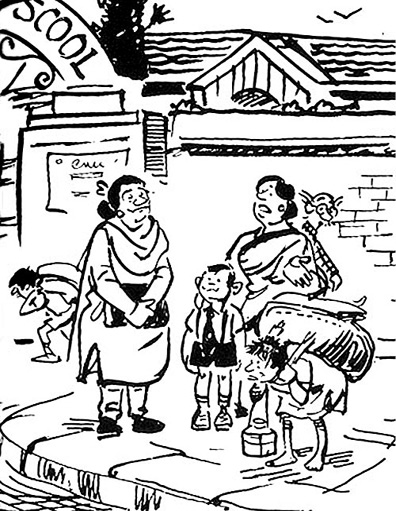
It’s really cruel burdening kids like this. I had to hire that boy to help my son!
10. What do you think the famous cartoonist R.K. Laxman is trying to convey in this cartoon? How does it relate to the 2016 law that you read about on page 123?
11. You have read about the Bhopal gas tragedy and the on-going struggle. Students from countries across the world have come together to support this struggle for justice. From protest marches to awareness campaigns, you can read about their activities on the website www.studentsforbhopal.com. The website also has resources such as photos, posters, documentaries, victims’ statements, etc.
Use this and other sources to make a wallpaper/exhibition on the Bhopal gas tragedy for your classroom. Invite the whole school to see and talk about it.

GLOSSARY
Consumer: An individual who buys goods for personal use and not for resale.
Producer: A person or organisation that produces goods for sale in the market. At times, the producer keeps a part of the produce for his own use, like a farmer.
Investment: Money spent to purchase new machinery or buildings or training so as to be able to increase/ modernise production in the future.
Workers’ unions: An association of workers. Workers’ unions are common in factories and offices, but might be also found among other types of workers, say domestic workers’ unions. The leaders of the union bargain and negotiate with the employer on behalf of its members. The issues include wages, work rules, rules governing hiring, firing and promotion of workers, benefits and workplace safety.
Click Below for
Class 8th History Exercise Questions (English Medium)
